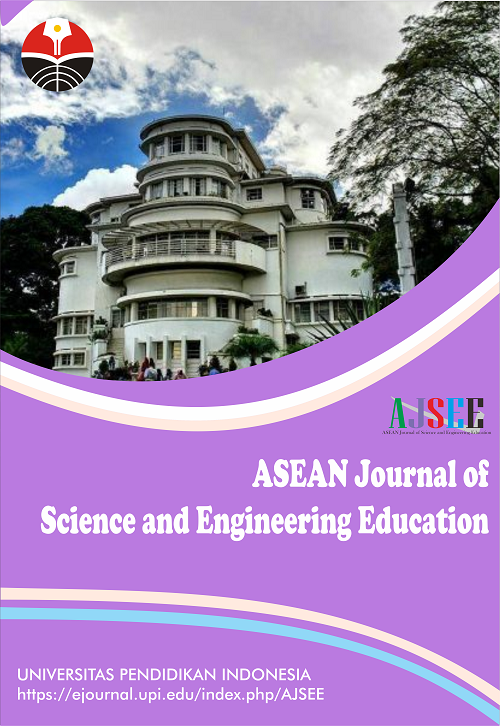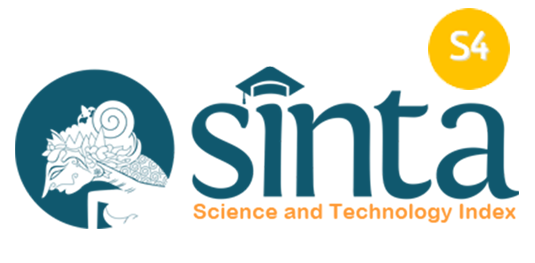Predictors of COVID-19 Vaccine Hesitancy and Its Relation to the Educational Background in Pakistan
Abstract
Keywords
Full Text:
PDFReferences
Afzal, M.S., Khan, A., Qureshi, U.U.R., Saleem, S., Saqib, M.A.N., Shabbir, R.M.K., Naveed, M., Jabbar, M., Zahoor, S., and Ahmed, H. (2021). Community-based assessment of knowledge, attitude, practices and risk factors regarding COVID-19 among Pakistanis residents during a recent outbreak: a cross-sectional survey. Journal of Community Health, 46(3), 476-486.
Ali, M., Ahmad, N., Khan, H., Ali, S., Akbar, F., and Hussain, Z. (2019). Polio vaccination controversy in Pakistan. The Lancet, 394(10202), 915-916.
Altamimi, A., and Ahmed, A. E. (2020). Climate factors and incidence of Middle East respiratory syndrome coronavirus. Journal of Infection and Public Health, 13(5), 704-708.
Balachandar, V., Mahalaxmi, I., Kaavya, J., Vivekanandhan, G., Ajithkumar, S., Arul, N., Singaravelu, G., Kumar, N.S., and Devi, S.M. (2020). COVID-19: emerging protective measures. Eur Rev Med Pharmacol Sci, 24(6), 3422-3425.
Barello, S., and Graffigna, G. (2020). Caring for health professionals in the COVID-19 pandemic emergency: toward an “epidemic of empathy” in healthcare. Frontiers in Psychology, 11, 1431.
Chandir, S., Siddiqi, D.A., Mehmood, M., Setayesh, H., Siddique, M., Mirza, A., Soundardjee, R., Dharma, V.K., Shah, M.T., Abdullah, S., Akhter, M.A., Ali Khan, A., and Khan, A.J. (2020a). Impact of COVID-19 pandemic response on uptake of routine immunizations in Sindh, Pakistan: an analysis of provincial electronic immunization registry data. Vaccine, 38(45), 7146-7155.
Cheval, S., Adamescu, M.C., Georgiadis, T., Herrnegger, M., Piticar, A., and Legates, D.R. (2020). Observed and Potential Impacts of the COVID-19 Pandemic on the Environment. International Journal of Environmental Research and Public Health, 17(11), 4140.
Cucinotta, D., and Vanelli, M. (2020). WHO declares COVID-19 a pandemic. Acta Bio Medica: Atenei Parmensis, 91(1), 157.
Dryhurst, S., Schneider, C.R., Kerr, J., Freeman, A.L.J., Recchia, G., van der Bles, A.M., Spiegelhalter, D., and van der Linden, S. (2020). Risk perceptions of COVID-19 around the world. Journal of Risk Research, 23(7-8), 994-1006.
Fine, P., Eames, K., and Heymann, D. L. (2011). Herd immunity: a rough guide. Clinical Infectious Diseases, 52(7), 911-916.
Harkness, J., Pennell, B. E., and Schoua‐Glusberg, A. (2004). Survey questionnaire translation and assessment. Methods For Testing and Evaluating Survey Questionnaires, 22, 453-473.
Helmy, Y. A., Fawzy, M., Elaswad, A., Sobieh, A., Kenney, S. P., and Shehata, A. A. (2020). The COVID-19 pandemic: a comprehensive review of taxonomy, genetics, epidemiology, diagnosis, treatment, and control. Journal of Clinical Medicine, 9(4), 1225.
Islam, M.S., Kamal, A.H.M., Kabir, A., Southern, D.L., Khan, S.H., Murshid Hasan, S.M., Sarkar, T., Sharmin, S., Das, S., Roy, T., Harun, M.G.D., Chughtai, A.A., Homaira, N., and Seale, H. (2021). COVID-19 vaccine rumors and conspiracy theories: The need for cognitive inoculation against misinformation to improve vaccine adherence. PLoS One, 16, 1–17.
Jin, Q., Raza, S. H., Yousaf, M., Zaman, U., and Siang, J. M. L. D. (2021). Can communication strategies combat covid-19 vaccine hesitancy with trade-off between public service messages and public skepticism? experimental evidence from Pakistan. Vaccines, 9(7), 757.
Kaddoura, M., AlIbrahim, M., Hijazi, G., Soudani, N., Audi, A., Alkalamouni, H., Haddad, S., Eid, A., and Zaraket, H. (2020). COVID-19 therapeutic options under investigation. Frontiers in Pharmacology, 11, 1196.
Kreps, S., Prasad, S., Brownstein, J. S., Hswen, Y., Garibaldi, B. T., Zhang, B., and Kriner, D. L. (2020). Factors associated with US adults’ likelihood of accepting COVID-19 vaccination. JAMA Network Open, 3(10), e2025594-e2025594.
Lazarus, J. V., Ratzan, S.C., Palayew, A., Gostin, L.O., Larson, H.J., Rabin, K., Kimball, S., and El-Mohandes, A. (2021). A global survey of potential acceptance of a COVID-19 vaccine. Nature Medicine, 27(2), 225-228.
Ledford, H., Cyranoski, D., and Van Noorden, R. (2020). The UK has approved a COVID vaccine-here's what scientists now want to know. Nature, 588(7837), 205-206.
Maciaszek, J., Ciulkowicz, M., Misiak, B., Szczesniak, D., Luc, D., Wieczorek, T., Fila-Witecka, K., Gawlowski, P., and Rymaszewska, J. (2020). Mental health of medical and non-medical professionals during the peak of the COVID-19 pandemic: A cross-sectional nationwide study. Journal of Clinical Medicine, 9(8), 2527.
Malik, A. A., McFadden, S. M., Elharake, J., and Omer, S. B. (2020). Determinants of COVID-19 vaccine acceptance in the US. EClinicalMedicine, 26, 100495.
Naveed, M., Azam, M., Saeed, M., Khan, N., and Aslam, M. (2021). Sampling plans using extended EWMA statistic with and without auxiliary information. Kuwait Journal of Science, 48(4), 1-20.
Salali, G. D., and Uysal, M. S. (2020). COVID-19 vaccine hesitancy is associated with beliefs on the origin of the novel coronavirus in the UK and Turkey. Psychological Medicine, 50, 1-3.
Sallam, M. (2021). COVID-19 vaccine hesitancy worldwide: a concise systematic review of vaccine acceptance rates. Vaccines, 9(2), 160.
Szilagyi, P. G., Thomas, K., Shah, M. D., Vizueta, N., Cui, Y., Vangala, S., and Kapteyn, A. (2021). National trends in the US public’s likelihood of getting a COVID-19 vaccine—April 1 to December 8, 2020. Jama, 325(4), 396-398.
Teo, S. P. (2021). Review of COVID-19 mRNA Vaccines: BNT162b2 and mRNA-1273. Journal of Pharmacy Practice, 34, 08971900211009650.
Vos, L. M., Habibović, M., Nyklíček, I., Smeets, T., and Mertens, G. (2021). Optimism, mindfulness, and resilience as potential protective factors for the mental health consequences of fear of the coronavirus. Psychiatry Research, 300, 113927.
DOI: https://doi.org/10.17509/ajsee.v1i2.40895
Refbacks
- There are currently no refbacks.
Copyright (c) 2021 Universitas Pendidikan Indonesia

This work is licensed under a Creative Commons Attribution-ShareAlike 4.0 International License.














